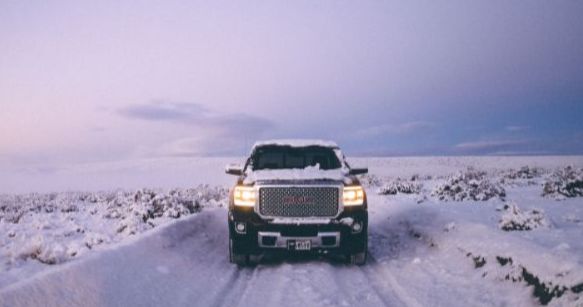Travelers are often advised to prepare for particular weather or climates in their chosen destination, and this is true for both domestic and international travel. So if you're planning on traveling across Canada this season, you'll need to prepare accordingly for driving. This large nation indeed gets a lot of snow, and many Canadian cities have large, hardworking fleets of snowplows that can clear up snow in a hurry. Toronto and Montreal have over 100 such vehicles each. But don't take that service for granted. Here are a few essential travel tips for drivers this winter.
Stay Alert on the Road
Across the U.S. alone, some three million car wrecks happen each year, and roughly six million people are injured in auto accidents. Now imagine just how many of those happen during the winter. Slick roads, poor visibility conditions, and a number of other factors could possibly multiply the chances of a crash. That's why it's so important, especially when traveling to a place you may not have been before, to stay alert on the road. Making sure you're aware of other drivers' actions around you could mean the difference between getting to your destination safely and getting into a nasty fender bender. So before you take to the roads for grandma's house this winter, make sure you're fully awake, that you can take turns with someone else driving if possible, and that you're paying close attention to the other vehicles on the road. In addition, make sure you're aware of your own vehicle on the road, especially if you're bringing a trailer or camper with you. Keep in mind that weight distribution systems are recommended if your trailer weight is more than 50% of your vehicle's weight. The last thing you want is an oversight on your part to cause an accident.
Keep Up with Car Maintenance
Winter car maintenance can seem like a huge pain. In reality, keeping your car maintained during the winter can make driving multiple times safer. This can include tasks as simple as making sure your entire car is brushed off before you start driving. Taking the extra two or three minutes to get all the snow off of your car's roof, hood, and tail lights can make an enormous difference. Failing to do those things could result in poor visibility for you and other drivers on the road. In addition, taking care of your tires can mean a safer driving experience. Driving with the wrong kind of tires or tires that are starting to go bald can have dangerous consequences. In fact, in 2017 alone, 738 people were killed in auto accidents that involved tire-related issues.

Understand How Snow and Ice Affect Driving
One of the best things you can do to ensure winter driving safety is to understand how snow and ice affect the way you need to drive. For one thing, be ready to turn the headlights on, even during the day, since visibility may be rather low. Even if it's the afternoon, turn on those lights if the weather gets cloudy and snow starts falling, and other drivers will probably do the same. This makes it much easier for cars and pedestrians to see one another, no matter what. Visibility is key here. And your driving should be on the cautious side. Defensive, cautious driving is the rule here, and you should expect to see most other drivers doing this, too. In addition, make sure you're aware of posted speed limits and speed minimums.
You should always be aware of the possibility of black ice, as well. You probably won't see it ahead of time, so you should drive as though you could come upon it any second. As for braking, brake gradually and carefully rather than slamming the brakes, since slamming them can cause you to spin out of control. Indeed, any sharp and sudden move can make your car slide or spin out of control, from sudden braking to sudden acceleration to making sharp turns. In short, stretch out any maneuver that you make. Drivers in some parts of the world might not have to worry about black ice, but that doesn't mean defensive driving isn't always important. In fact, more cautious driving might have prevented some of South Carolina's car accidents (the state sees an average of one every four minutes), and they hardly get any snow at all!
Suppose you do start to slide or spin out of control? Don't panic; instead, take your foot off the gas, and try not to brake, either. Roll with the movement, and point your car's wheels in the direction you want to go in.
Traveling during the winter to see family and friends can be fun, but only if you're prepared to get to your destination safely. Make sure you consider these travel tips if you plan on taking any kind of road trip this winter.

